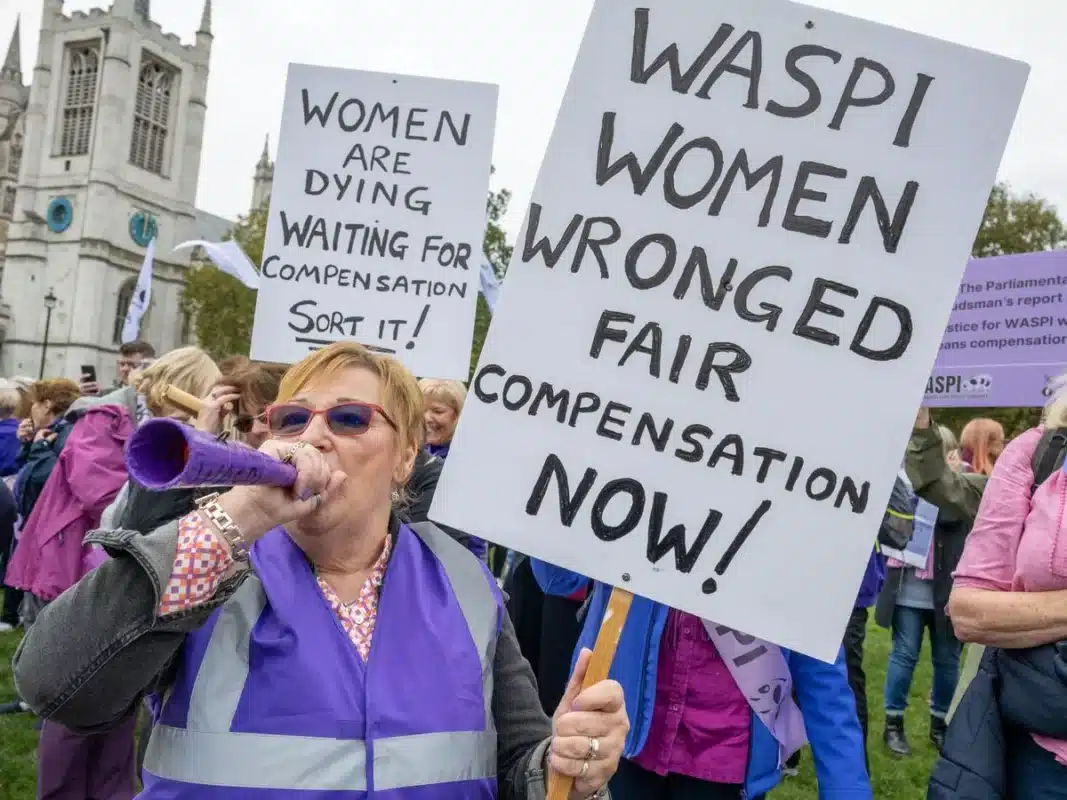The Labour Party and the Parliamentary Ombudsman are at odds over compensation for women impacted by increases in the state pension age. Calls for parliamentary action have been sparked by the watchdog’s assertion that Labour has compromised its findings by rejecting its recommendations for compensation.
Women Against State Pension Inequality (WASPI), who were blindsided by adjustments to their retirement age, are at the center of the dispute. Both the ombudsman and campaigners have sharply criticised Labour for refusing to support financial redress amid criticism of the government’s handling of the matter.
Waspi Women and the Call for Justice
Women born in the 1950s, many of whom experienced financial difficulties when the state pension age was raised without sufficient notice, are at the center of the debate. In 2022, the Parliamentary Ombudsman suggested that the Department for Work and Pensions (DWP) issue a formal apology and offer compensation ranging from £1,000 to £2,950 per person. Despite expressing regret, the Labour Party decided against supporting compensation, claiming it would put an excessive burden on the public coffers.
This decision has been criticised as “extremely unusual” by the ombudsman, who highlighted a compliance rate of 99.9% with its recommendations in other cases. Waspi campaigners echoed these concerns, insisting that Parliament, not the government, should have the final say on the matter. Campaigners further accused the government of “cherry-picking” data, such as using a survey of just 203 women to estimate awareness of the pension age changes among 3.6 million affected individuals.
Angela Madden, chair of the Waspi campaign, stated, “The ombudsman clearly and strongly defended their report’s findings, and we welcomed his resolve that compensation is absolutely key to justice. As recognised by the watchdog, the government has been cherry-picking data that suits its conclusions, rather than listening to the hard facts in the report. ”
Growing Political Pressure for Accountability
The ombudsman’s report has gained renewed attention following cross-questioning at the Work and Pensions Select Committee and mounting political support. This week, the Scottish Parliament unanimously passed a motion urging the UK Government to reconsider compensation. The motion, supported by all major parties, including Scottish Labour, reflects growing discontent over the handling of the issue.
Critics have noted inconsistencies in the government’s stance. While Labour claimed 90% of women knew about the changes, the ombudsman pointed out this contradicts an earlier ministerial apology. The ombudsman warned that failing to comply with its recommendations risks undermining its authority, emphasising the importance of Parliament’s support in maintaining compliance.









